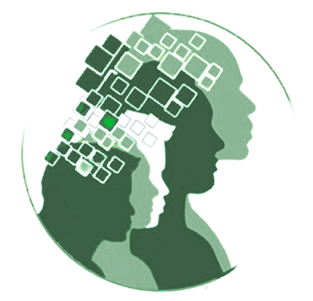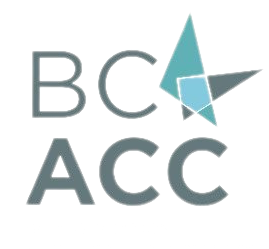Human beings experience a wide range of emotions, both positive and negative, which can significantly influence their actions and behaviors. Often, these emotions drive our actions subconsciously, leading us to react in certain ways without fully understanding the underlying feelings guiding those reactions. This lack of self-awareness can result in our attention shifting from self-focus to concentrating on others. Jealousy serves as a prime example of an emotion that can provoke specific behaviors unknowingly. It is a complex feeling characterized by bitterness, hostility, and resentment towards individuals—be they close loved ones, significant others, or even strangers—who possess something we desire but believe we lack. Such desired items might include achievements, personal traits, privileges, material possessions, or social status. Jealousy stems from a focus on what others have, overshadowing the recognition of our own advantages. This feeling often arises not because we genuinely lack these attributes, but because we fail to acknowledge and appreciate what we do possess.
This phenomenon is particularly prevalent in relationships, where jealousy can emerge in various forms, including romantic partnerships and friendships. It’s crucial to understand and acknowledge when we’re experiencing jealousy, as failing to do so can have detrimental effects on our relationships. Unrecognized jealousy can lead to actions that push others away, resulting in lost connections and the deterioration of meaningful relationships. When our focus shifts from self-improvement to obsessing over others, we risk damaging these bonds.
recognizing jealousy within ourselves is not always straightforward. However, awareness is key to preventing the negative impact this emotion can have on our relationships. If you find yourself wondering whether jealousy is influencing your behavior, here are five signs that you might be experiencing this emotion.
1. Constant Questioning
There are times when we find ourselves bombarding others with a barrage of inquiries over seemingly minor details. Questions like “Who were you with?” “What were you discussing?” “How did you obtain that?” “What’s the salary for your new job?” “How did you manage to get hired?” “How did you achieve that goal?” “Did you enjoy the company at that party?” “Who were you sitting with the other day?” can be relentless. It’s crucial to pause and reflect on our motives behind these questions. Are we driven by mere curiosity, or is jealousy lurking beneath the surface? It’s important to self-examine and consider whether we are appreciating our own achievements and possessions while we probe into the details of someone else’s life. Recognizing the difference between curiosity and jealousy can help us understand our true intentions and manage our emotions more effectively.
2. Looking for Evidence
Catching ourselves deep in the scroll through someone’s social media profiles, searching for something, anything, that might validate our feelings of jealousy is a clear indicator that jealousy is influencing our actions. This behavior signifies a departure from our usual selves, driven by the need to substantiate assumptions we’ve made in our minds about others. For example, even in a healthy and committed relationship where there’s never been a breach of trust, jealousy might lead us to unjustly suspect our partner of infidelity or flirtatious behavior, prompting a search for “proof” of these baseless suspicions. Similarly, jealousy towards a colleague might drive us to look for evidence supporting negative assumptions about their character or work ethic. The same pattern can occur with siblings or neighbors, where envy of their achievements or lifestyle propels us to find anything that might support our negative perceptions of them.
Often, these assumptions push us to seek out evidence to back them up, even when there is no logical connection between our suspicions and the reality of the situation. This futile search for proof is typically a way to convince ourselves of the validity of our unfounded beliefs, further entrenching us in a cycle of jealousy and mistrust.
3. Making Accusations
When we start distrusting others without valid reasons, it’s often jealousy at play. Trust, an essential component of any healthy relationship, becomes vulnerable under the weight of jealousy. We might experience bitterness, hostility, and resentment towards someone, and to alleviate the discomfort of harboring such negative emotions, we may start accusing them as a way to feel better about ourselves. For instance, even in the absence of any proof of infidelity, jealousy might lead us to wrongfully accuse our partner to sidestep feelings of guilt. Similarly, jealousy towards loved ones can manifest in accusations of neglect or dishonesty, as we convince ourselves they don’t care or are not being truthful with us.
This pattern reflects a shift of focus from self-reflection to externalization, where jealousy skews our perception and prompts us to find fault in others rather than addressing our own insecurities or negative emotions. Our minds, in an attempt to escape the discomfort brought on by jealousy, may lean towards making accusations, thereby emphasizing these as a defense mechanism to avoid facing our own feelings. It’s significant to acknowledge that resorting to accusations when feeling jealous is an unhealthy defense mechanism, highlighting the importance of confronting and managing our emotions constructively.
4. Insecurity and Self-doubt
The accomplishments of others can sometimes ignite our insecurities, leading to feelings of jealousy, whether the individuals in question are close to us or complete strangers. This often stems from comparing our journey to the highlights of others’ lives, which can exacerbate our insecurities and drive us towards seeking comfort in less healthy ways. As a result, we might project our negative emotions onto others, manifesting as resentment and anger in the guise of jealousy. In an attempt to soothe these feelings, we might seek validation and praise from those we envy, due to a lack of self-confidence. The situation becomes particularly problematic when the individuals we envy are unaware that their acknowledgment or approval could significantly mitigate our insecurities. Our failure to communicate our needs—stemming from insufficient self-reflection—can lead to expectations that go unmet, fueling our feelings of jealousy.
5. Criticizing Others Unfairly
When we catch ourselves disparaging someone due to envy of their accomplishments or possessions, it’s a pivotal moment to pause and reflect. What about their success provokes a negative reaction within us? Often, when faced with the achievements of others—especially when we feel we are lacking—we begin to offload our negative emotions onto those who have succeeded. Phrases like “I can’t believe you did this all by yourself,” “I’m not sure you deserve this,” “This isn’t really an achievement; anyone could do it,” “I bet someone else did the heavy lifting,” or “You just got lucky; otherwise, you wouldn’t have made it” are telltale signs of this transfer of feelings.
This behavior is indicative of underlying frustration with ourselves for overlooking our own accomplishments. Such frustration demands an outlet, even if it means resorting to the unhealthy mechanism of unfairly criticizing others.
Recognizing these signs of jealousy can be a crucial step towards enhancing our self-awareness and addressing the issue if we find ourselves affected by it. Interestingly, at its core, jealousy often stems from a phenomenon we might describe as ‘self-forgetting.’ This means that underlying feelings of envy are really about losing sight of our own accomplishments, underestimating our blessings, and making unfair comparisons between ourselves and others, all the while fixating on their achievements. Essentially, jealousy signals a disconnect from our own value and worth.
It’s this aspect of ourselves—the ‘self’—that requires nurturing and development to overcome feelings of jealousy. This encompasses various facets such as self-image, self-esteem, and self-confidence. By fostering growth in these areas, we can start to diminish the impact jealousy has on our lives, leading to a healthier, more fulfilled existence.
Should you feel the urge to delve deeper into self-improvement and seek guidance to learn more about yourself, don’t hesitate to reach out for coaching and professional support. You can schedule counselling and psychotherapy sessions to take place In person at Park Place in downtown Vancouver, Online, via Telehealth or Virtually. Engaging in this process can be a transformative experience, enabling you to not only combat jealousy but also to enhance your overall well-being.










